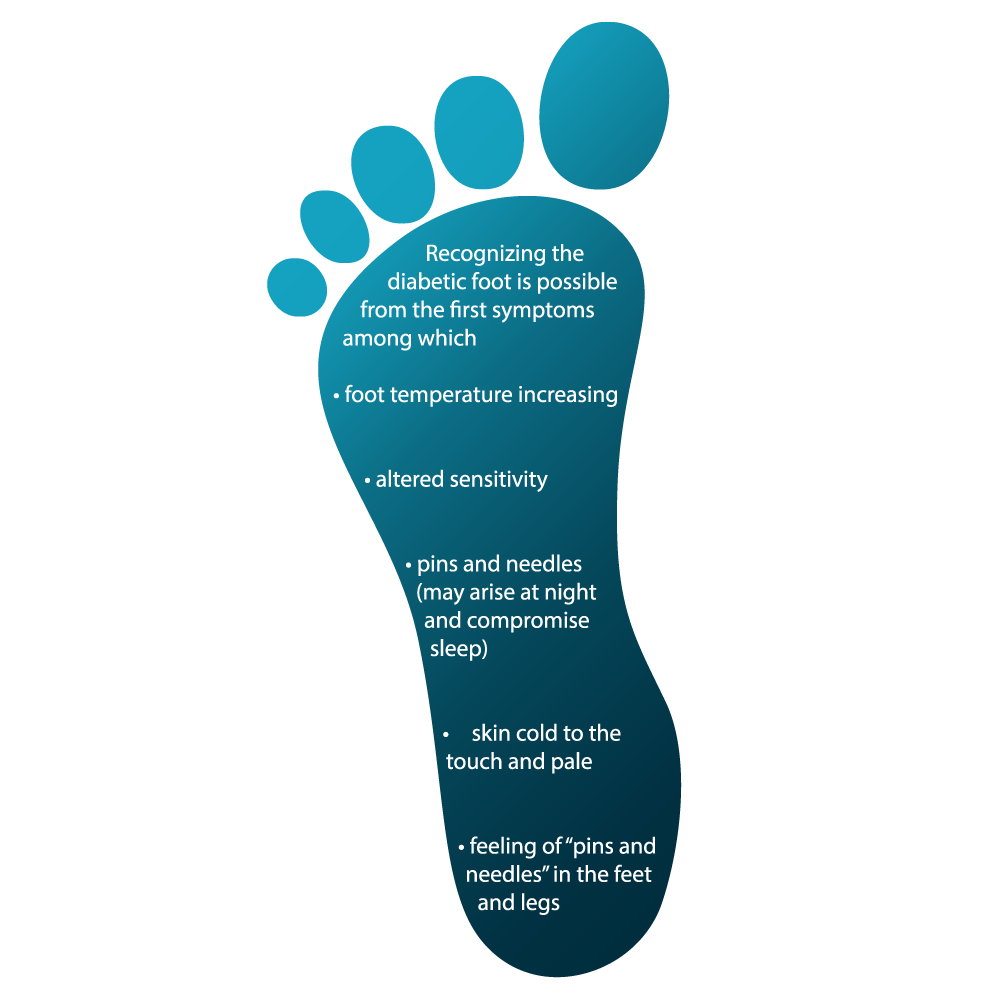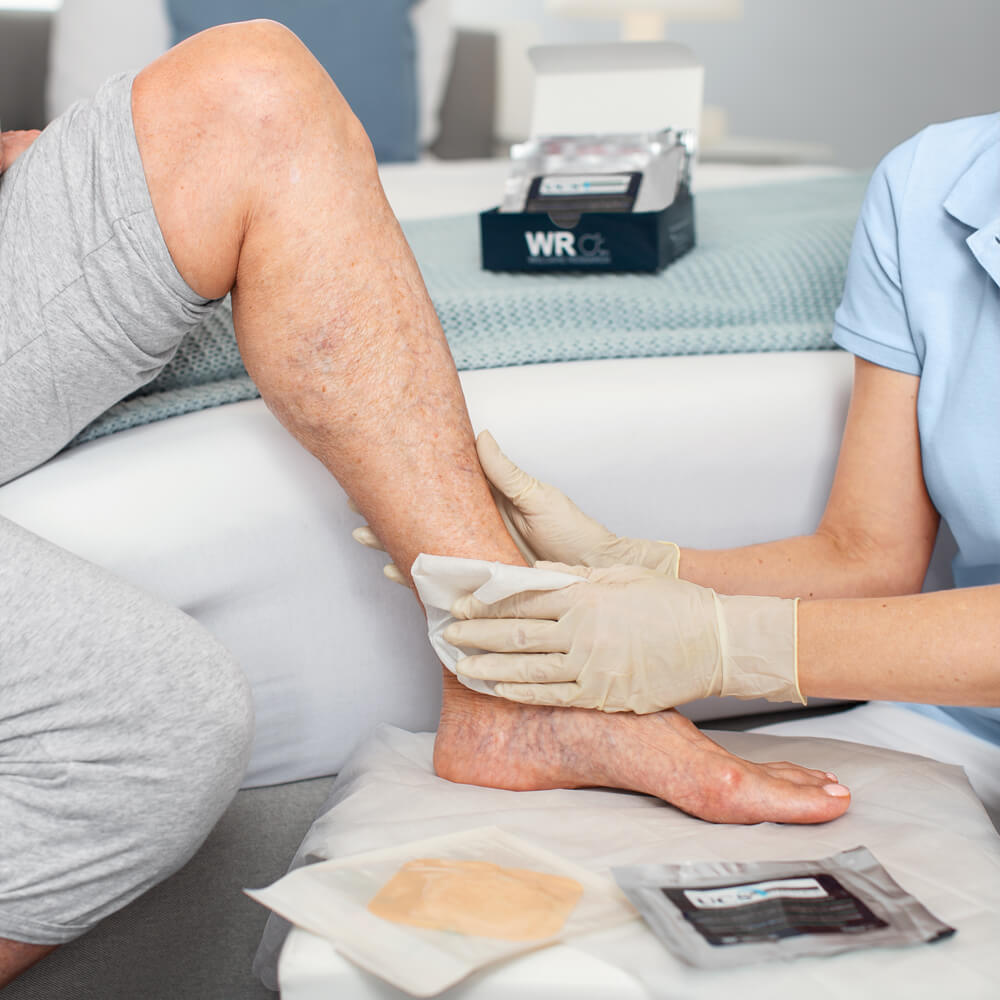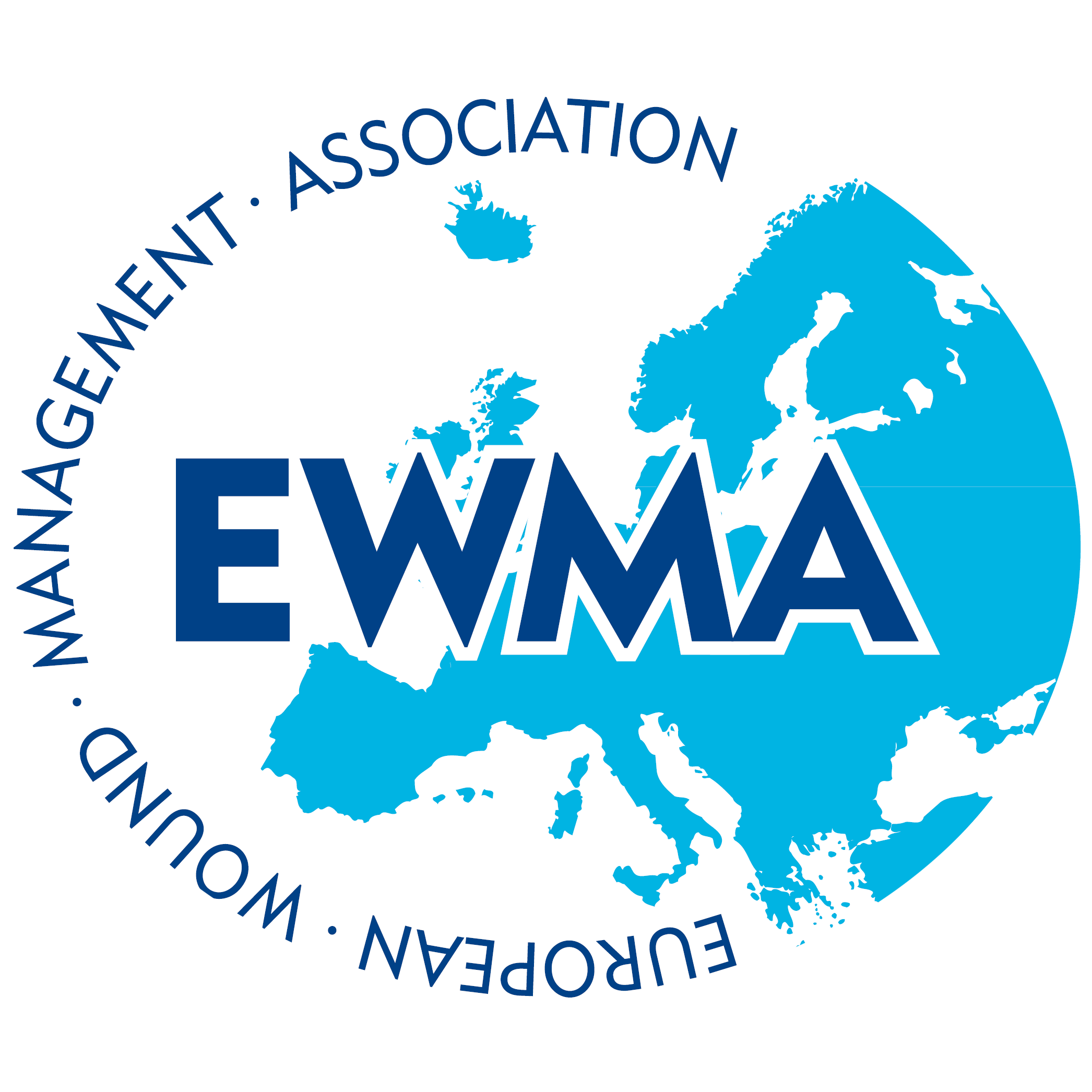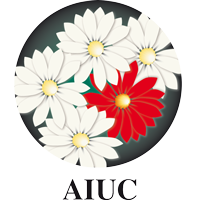In Italy there are
4 million
diabetic patients.
*(according to the most recent numbers released by the Italian society of diabetology, dating back to 2019).
300 thousand
people affected by the so-called diabetic foot.
*(according to the most recent numbers released by the Italian society of diabetology, dating back to 2019).
In Italia ci sono
4 milioni
di pazienti diabetici.
*(secondo i numeri più recenti diffusi dalla Società italiana di diabetologia, risalenti al 2019).
300 mila
le persone colpite dal cosiddetto piede diabetico.
*(secondo i numeri più recenti diffusi dalla Società italiana di diabetologia, risalenti al 2019).
Diabetic foot is a term that generically indicates all the clinical problems affecting the foot of diabetic patients and which have diabetes as a specific cause. They are therefore pathologies linked to the two chronic complications of diabetes affecting the lower limbs:
i.e., a bad sensitivity mainly affecting the lower limbs which manifests itself with tingling, cramps, gait disorders and perceptive alterations
a medical condition attributable to disorders in the blood circulation of the arteries (i.e., poor blood circulation)
Diabetic foot care is connected to the need to treat the ulcerative lesion when it is established. The course of treatment, except for some common elements, is different when the ulcer is neuropathic, resulting from peripheral neuropathy, or when the ulcer is ischemic, or connected to the presence of peripheral vascular disease.

Over time these symptoms can evolve and, in the event that serious damage to the nerves of the foot is associated, the following may occur: the appearance of ulcers, incorrect walking, infections (which can progress to reach the deep layers of the skin and reach the bones).
Proper treatment of diabetic foot could include:
daily foot care with special medical devices
therapeutic plan to ensure revascularization of the affected limb
wear appropriate footwear
perform periodic checks

For the treatment of the diabetic foot, the use of Poloxamer-based pre-soaked sterile medical devices is recommended, effective in the removal and debridement of the wound, also capable of inhibiting the proliferation of anaerobic bacteria and promoting wound healing. In fact, Poloxamer is a non-cytotoxic surfactant that lowers the surface tension between two liquids or between a solid and a liquid. Poloxamer surfactant has been shown to prevent, break down and remove biofilm allowing for effective and thorough wound cleaning and debridement.
SIGN UP to our newsletter
Sign up to our newsletter to be among the first to receive offers and news.
Welcare Industries S.p.A © 2025 | VAT 01232670552 | REA MI – 2073626 | All Rights Reserved | Privacy Policy | Credits


Sei un operatore sanitario?
Accedi per visualizzare i contenuti dedicati
Sei un operatore sanitario?
Accedi per visualizzare i contenuti dedicati